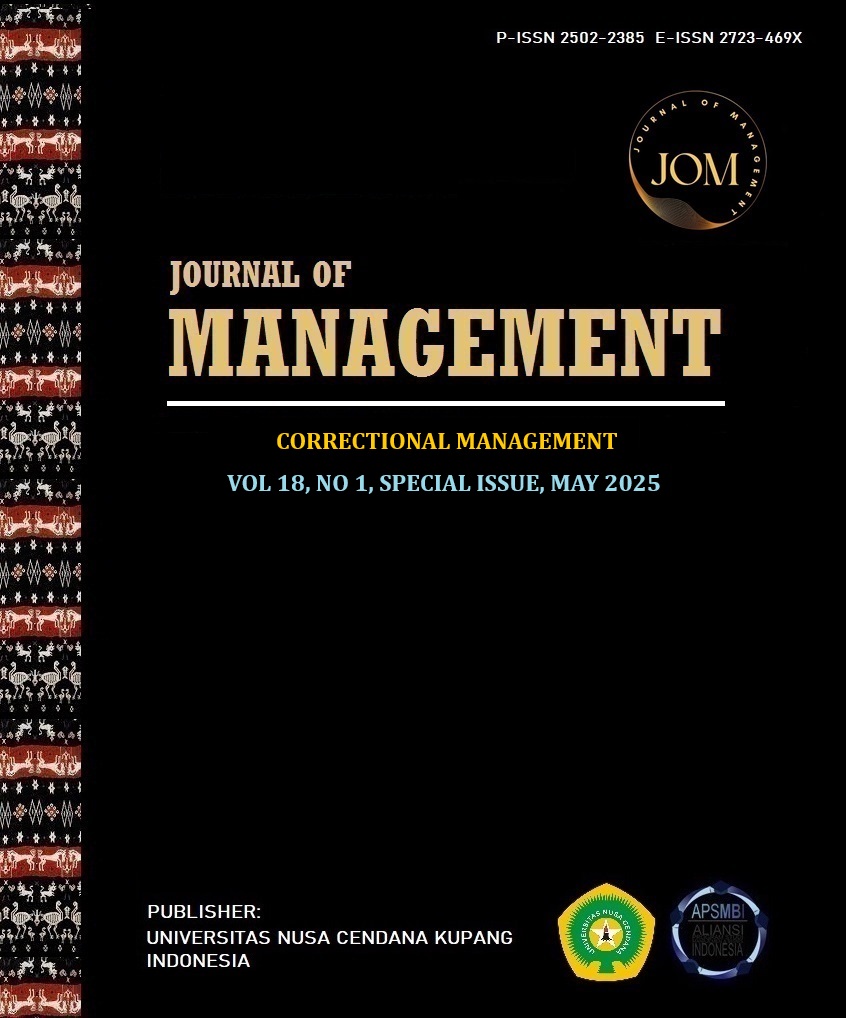DEVELOPMENT OF A GROUP SOCIAL GUIDANCE MODEL TO BUILD PROSOCIAL BEHAVIOUR OF FOSTERED CHILDREN
(CASE STUDY IN SPECIAL DEVELOPMENT INSTITUTION FOR CHILDREN CLASS II PEKANBARU)
Abstract
The coaching process at the Special Development Institution for Children actually aims to rebuild their character and behaviour to be in line with positive social values. However, behind this hope, it is still common to find fostered children who show low prosocial behaviour such as lack of concern, empathy, and desire to help others. This study uses the R&D (research and development) research method which is useful in developing a learning model in the form of a group guidance programme with a peer group approach for foster children. This study uses a qualitative approach method to explore and understand the meaning related to social problems that occur in groups of children. Based on the results of the research there are five children out of forty children who have low prosocial behaviour in LPKA Pekanbaru. They come from a family background that has complex problems and a poor social environment. The development of the peer group guidance model was carried out by providing intervention to them with a series of activities that had been arranged in several sessions so that the percentage level of prosocial behaviour from the pre-test results which was originally an average of 66.8% to 90% which means that the intervention provides a significant increase in children's prosocial behaviour by 23.2%. Peer group counselling provides opportunities for children to learn through observation and direct experience within the group. In addition to behavioural changes, the group guidance also had an impact on children's attitudes towards others. It is concluded that the peer group guidance model to build the prosocial behaviour of assisted children meets the criteria and is effective so it is feasible to use. The developed model can be used by counsellors to build the prosocial behaviour of foster children through the implementation of group guidance with a peer approach.
Keywords: Group Guidance Model; Peer Group; Prosocial Behaviour; Assisted Children
Downloads
References
Atika, A., & Andriati, N. (2021). Pembelajaran Cooperatif Learning Bimbingan Kelompok Teman Sebaya Melalui Pendekatan Behavioral. Jurnal Pendidikan Sosial (Vol. 8, Issue 1).
Eska, M. A, Titin, S. A. M. (2018). Skrining Perilaku Remaja Di Lembaga Pembinaan Khusus Anak (Lpka) Kelas Ii Bandung. Jurnal Keperawatan Komprehensif Vol. 4 No. 1 , 32–40.
Masyita, M. (2019). Penerapan Bimbingan Kelompok dengan Teknik Peer Group Untuk Meningkatkan Kemampuan Komunikasi siswa. Quanta volume 3, no 2 https://doi.org/10.22460/q.v2i1p21-30.642
Paramitha, S. D. (2019). Layanan Konseling Kelompok Dalam Meningkatkan Psychological Well-Being Remaja Di Lembaga Pembinaan Khusus Anak (Lpka) Pangkalpinang. Scientia: Jurnal Hasil Penelitian, 4(1), 127–147.
Sabaruddin., Puluhulawa, F.U. H., & Udin. (2021). “Model for Children in Conflict With The Law in The Penal System.” Philosophia Law Review, 1(2), 104–125.
Sari, D. Y., Fadhilah, S. S., & Susilo, A. T. (2019). Perilaku Antisosial: Faktor Penyebab dan Alternatif Pengentasannya. In Jurnal Psikoedukasi dan Konseling (Vol. 3, Issue 1). http://jurnal.uns.ac.id/jpk
SDP Publik. (2024). Data Anak Binaan di LPKA Kelas II Pekanbaru. https://sdppublik.ditjenpas.go.id/
Touwe, Y. (2020). Model Layanan Bimbingan Kelompok Untuk Meningkatkan Perilaku Prososial Siswa. Institutio: Jurnal Pendidikan Agama Kristen Vol.Vi. No.17823–7830.

 Aisyah Aisyah(1*)
Aisyah Aisyah(1*)



